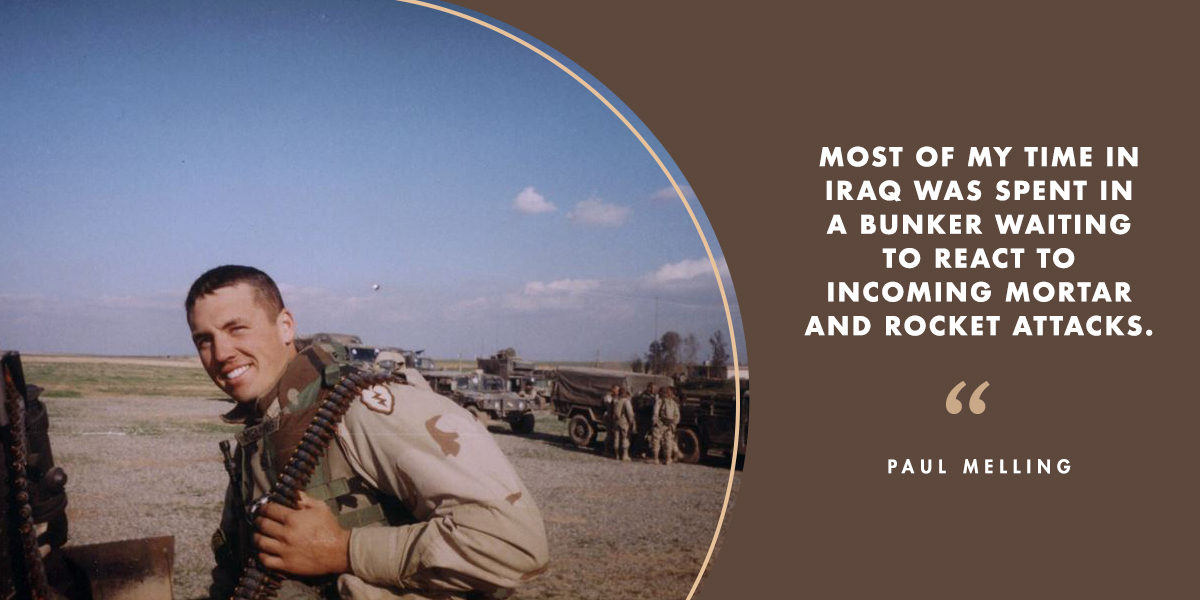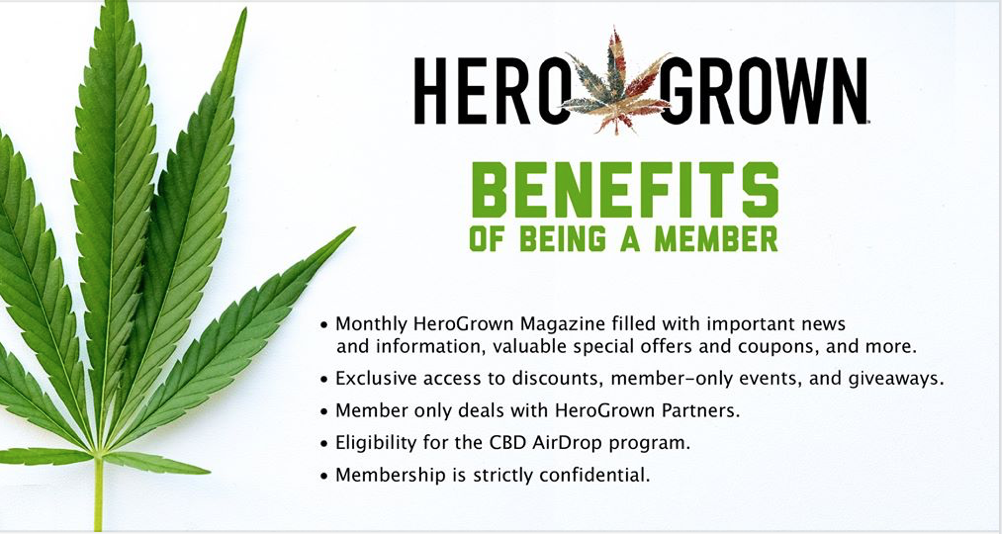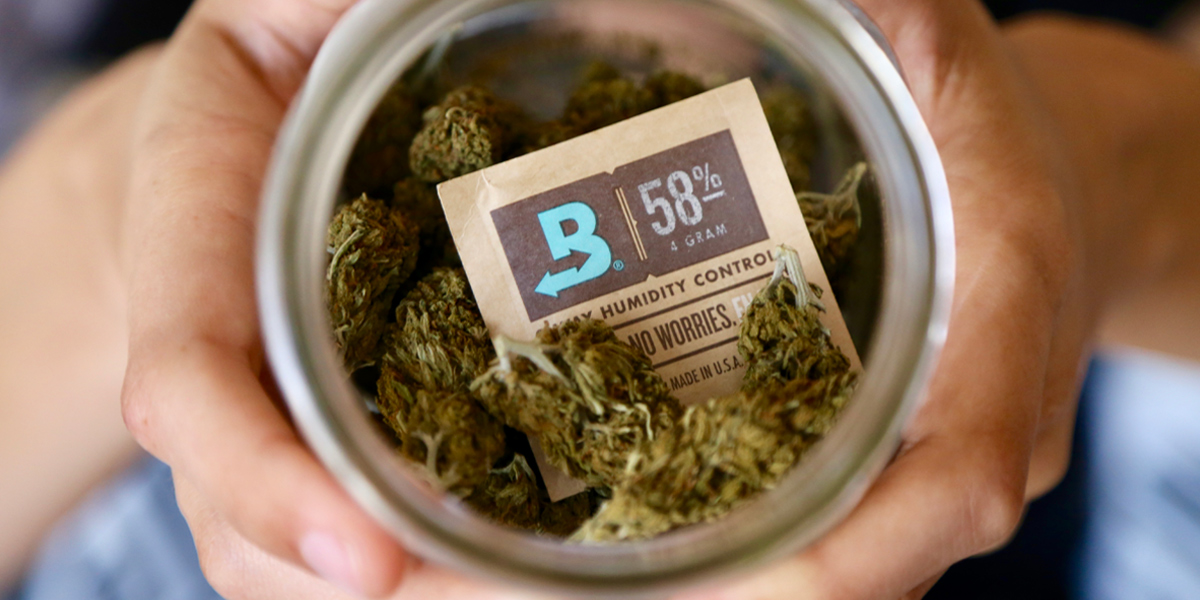Boveda acknowledges the benefits that medicinal cannabis can bring to veterans with PTSD with a case study of one such veteran.

The following is an article produced by a contributing author. Growers Network does not endorse nor evaluate the claims of our contributors, nor do they influence our editorial process. We thank our contributors for their time and effort so we can continue our exclusive Growers Spotlight service.
Disclaimer
Grower’s Network is happy to reproduce this article with permission from Boveda. If you would like to read the original article, click here.
No Longer Hiding
Protecting our freedoms. Keeping us safe. And finding relief from service-related injuries and trauma with medicinal cannabis. HeroGrown, a nationally recognized non-profit organization, supports both veterans and first responders’ right to use medicinal cannabis. Boveda is a founding sponsor of HeroGrown. Join us in helping heroes, like Paul Melling access the medicine they need.
The number of United States veterans suffering from post-traumatic stress disorder (PTSD) is staggeringly high. It has had dramatic effects on those who simply wanted to serve their country, many of whom now suffer flashbacks, aggression, night terrors and/or insomnia, extreme anxiety, self-destructive behavior and other debilitating symptoms.
Editor’s Note: The VA estimates that 11-20% of veterans from the wars in Afghanistan and Iraq have PTSD; 12% of Desert Storm veterans have PTSD; and 15% of Vietnam veterans have PTSD. Source here. Some of their trauma may not even come from conflict either -- as some of it stems from harassment, assault, and abuse from other service members.

One of the brave warriors who has experienced these life-altering symptoms is Paul Melling. After the tragic events of September 11, 2001 (commonly called 9/11), Melling dropped out of college at North Dakota State University to sign up in the military. In January 2003, he was stationed at Schofield Barracks, Hawaii, before joining the 2nd battalion, 11th field artillery, 25th Infantry division. The following January, Melling was deployed to FOB (Forward Operating Base) McHenry near Kirkuk, Iraq.
Editor’s Note: Forward Operating Bases (or FOBs) are notorious for the amount of action they experienced during the wars in Iraq and Afghanistan.
“My MOS [military operation code] was 13b, field artillery cannon crew member,” Melling described. “Most of my time in Iraq was spent in a bunker waiting to react to incoming mortar and rocket attacks.”
“We provided artillery support for infantry and did a lot of harassment and interdiction fire, which was rebranded as terrain denial fire at some point during my deployment.
“I switched jobs in my artillery section but was primarily the radio operator and I regularly was a driver or gunner on convoys to the Kirkuk air base or to town for meetings with the locals. I also spent a large amount of time in a tower on guard duty.”
PTSD Follows Deployment
Melling returned to Hawaii in February 2005, where he remained until he was discharged in June 2006. Then he returned to his home state of Minnesota. It wasn’t long before Melling noticed the symptoms of PTSD manifest after his emotionally and physically exhausting deployment. He went to VA doctors and was prescribed antidepressants to ease disturbing dreams, angry outbursts, and at times, suicidal thoughts. The medications weren’t effective. Melling first learned about medicinal cannabis at this time.
“I was first introduced to cannabis not long after I was discharged, sometime in the summer of 2006. At the time I did not realize what benefits it had, because it was an illegal recreational drug. After being in and out of the VA and on and off of prescription anti-depressants, I began to use cannabis more regularly later in 2007 and 2008.
“I started to realize that when I used cannabis, I slept through the night, didn’t wake to disturbing dreams and felt my sleep quality was improved. However, I continued to try to give it up; at times people including myself believed it was an addiction and dangerous. I tried various other sleep meds and antidepressants but felt they did not make me feel any better, just crazy, or even more tired. I feel it helps keep my mind from spiraling to dark places I don’t want to go.”
No Longer Hiding Medicinal Cannabis Use
Despite cannabis being illegal at the federal level, Melling doesn’t feel the need to hide his use from the VA, despite the fact that many veterans hide their usage in order to protect their benefits.
“I used to hide, but I don’t anymore. This is mostly because I don’t go to the VA for anything mental-health related and I’d prefer my primary care person to know everything they can about my health situation. I use the VA for physicals, cholesterol tests and other blood check type stuff—plus the emergency insurance. Aside from that, I mostly stay away.”
Melling admits that he feels extreme guilt for many of the things he encountered during his deployment — and that cannabis is the only thing that has helped him overcome this and the other PTSD issues he developed.
“People wonder why 22 vets kill themselves everyday -- [the reason] seems pretty obvious to me. I feel absolute disgust for what I have been a willing participant in; sometime I feel like my condition is not a stress disorder but more of a regret disorder. It feels like the only relief I can find from these feelings is smoking (cannabis).”
“I enlisted in the Army in good faith, on the assumption that I would serve my country and the people of this country, and fight those that would plan attacks like the one on September 11th. Instead, I end up going to participate in the War in Iraq. We went over there and were forced to blow up houses with innocent people inside, and terrorize them in the night with artillery fire. I lost many friends. Then I come home and people look down on me because I want to smoke a plant to get to sleep.”

Flower: A Way Out of Pain & Addiction
Everyone — regardless of military service — should have the right to medicinal cannabis. HeroGrown currently serves more than 40,000 people; people who have protected us and our freedoms. Help them find relief and a way out of addiction and healing through flower. Please give.
Help HeroGrown Launch the Hero Discount Program in Legal Jurisdictions
- Donate to HeroGrown.
- Sponsor monthly CBD AirDrops.
- Cannabis company? Donate product.
Boveda is the leading sponsor of HomeGrown. HomeGrown is a 501(c)(19) nonprofit organization, so your donation is tax deductible to this tax-exempt war veterans’ organization, which consists of at least 90% war veterans.

10 Best Gift Ideas for Cannabis Connoisseurs and Growing Aficionados (2022)
December 7, 2022Developing and Optimizing a Cannabis Cultivation System
December 14, 2021Dealing with Insomnia: How Can CBD Help?
December 10, 2020Your Guide to Sleep and CBD
December 7, 2020
Do you want to receive the next Grower's Spotlight as soon as it's available? Sign up below!
Resources:
Want to get in touch with Boveda? They can be reached via the following methods:
- Website: https://bovedainc.com/
- Email: info@bovedainc.com
Here are a few additional resources we at GN hope can help our servicemen & women and their families transition from military service to civilian life:

Do you have any questions or comments?

About the Author
Rachelle Gordon is a Minneapolis-based freelance writer and educator in the cannabis space. She has dedicated herself to informing others about the powers of plant medicine after witnessing her father’s struggle with epilepsy (and subsequent stroke) in her childhood. Rachelle’s posts are being provided for informational purposes only; they do not constitute an endorsement or an approval by Boveda of any of the products, services or opinions of Rachelle. Boveda bears no responsibility for the accuracy, legality or content of this post or links to the posts. Contact Rachelle Gordon for answers to questions regarding her content.